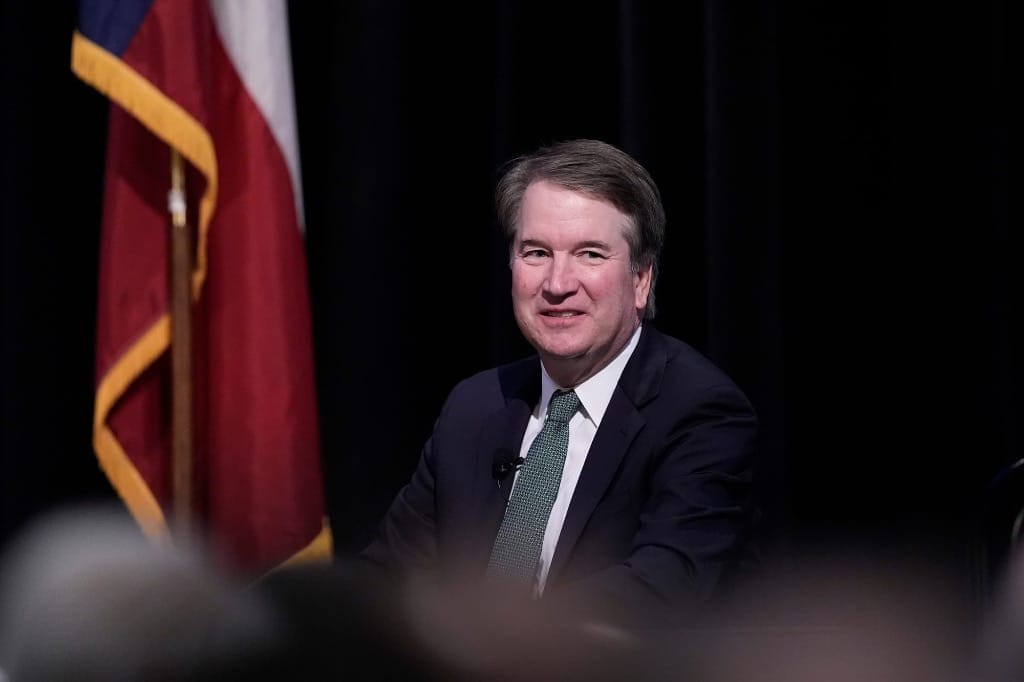Supreme Court Finds District Judges Can Review Agency Rules
The telecom industry had urged justices against the move, saying it would introduce regulatory uncertainty.
Jake Neenan

WASHINGTON, June 20, 2025 – In a significant shift, the Supreme Court ruled Friday that rules adopted by the Federal Communications Commission can be reviewed and potentially found invalid by district courts.
The court decided 6-3 that the Hobbs Act does not prevent lower district courts from reviewing the validity of orders as part of enforcement actions that come after a given rule takes effect. The court’s conservatives were in the majority, with the liberal justices dissenting.
“The Hobbs Act dictates how, when, and in what court a party can challenge a new agency order before enforcement,” Justice Brett Kavanaugh wrote. “The Act does not purport to address, much less preclude, district court review in enforcement proceedings.”
FROM SPEEDING BEAD SUMMIT
Panel 1: How Are States Thinking About Reasonable Costs Now?
Panel 2: Finding the State Versus Federal Balance in BEAD
Panel 3: Reacting to the New BEAD NOFO Guidance
Panel 4: Building, Maintaining and Adopting Digital Workforce Skills
The case centered on an FCC order that said online fax services aren’t covered by the Telephone Consumer Protection Act. Two chiropractors had sued a healthcare company for sending unsolicited faxes without an opt-out notice – private parties can bring civil suits under the law – and the district court said the FCC order forced it to toss the majority of the claims because they involved online fax services. The Ninth Circuit Court of Appeals agreed.
The Supreme Court said the district judges could now weigh in on whether the FCC order was valid, and sent the case back down to them.
“The District Court should interpret the statute as courts traditionally do under ordinary principles of statutory interpretation, affording appropriate respect to the agency’s interpretation,” Kavanaugh wrote.
That seemed to open the door for other FCC regulations under TCPA, and likely other laws, to be challenged. The agency issues robocall and other consumer protection regulations under the law.
“Boom. Everything changes,” Eric J. Troutman, partner at Troutman Amin and longtime TCPA attorney, wrote in a blog post Friday. “It really does change everything we thought we knew about the TCPA. And EVERYTHING is on the table now.”
The court has issued a string of decisions in the last year curtailing the power of federal agencies. Justices established precedent that prevents agencies from acting on issues of “vast economic and political significance” without clear permission from Congress, ended the 50-year practice of deferring to agency interpretations of laws, and said the Securities and Exchange Commission couldn’t issue fines without a jury trial – each of which has been cited, at times successfully, by companies looking to overturn FCC rules in court.
Telecom industry groups like CTIA, NCTA, and USTelecom had argued for preserving the Hobbs Act, telling justices the stability was necessary for their industry.
“Stakeholders can be confident that when an FCC order is upheld by a federal court of appeals or left unchallenged, it will not then be invalidated in other circuits,” they wrote in a joint brief. “This certainty is critical for the inherently national communications industry, which demands a uniform policy approach.”
Kavanaugh wrote in the opinion that “policy concerns about potential disagreement between courts do not override statutory text and traditional administrative law principles. Circuit splits followed by Supreme Court review are common and do not justify denying judicial review in enforcement proceedings.”
The dissent
“The text of the Hobbs Act makes clear that litigants who have declined to seek preenforcement judicial review may not contest the statutory validity of agency action in later district-court enforcement proceedings,” Justice Elena Kagan wrote in the dissent. “And this Court’s prior decisions have said just that.”
She argued the ruling would lead to companies simply not complying with agency rules, and waiting for potential enforcement actions to argue the rules themselves are invalid.
“In all, the majority’s misreading frustrates the point of the Act, which is to prevent collateral attacks, possibly years down the line, on even the most settled administrative frameworks,” she wrote.









